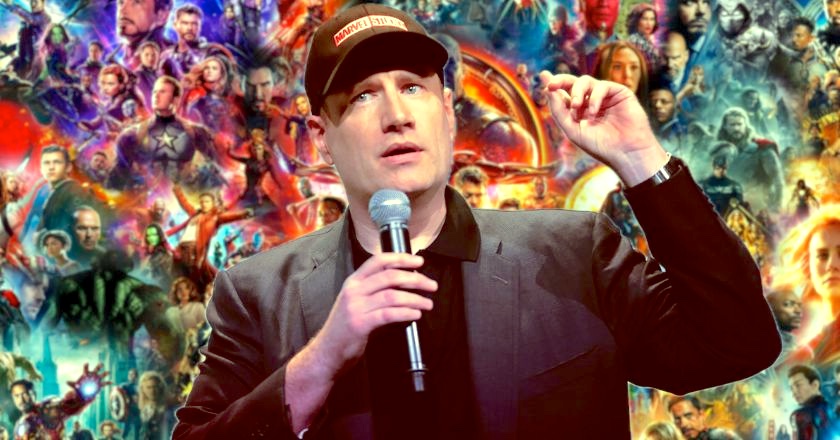After running a low-performance release and an overwhelming flood of content, Marvel Studios boss Kevin Feige officially confirmed that the MCU is being pulled back. The franchise’s future will still be bigger, but it’s not that bloated.
During a recent media roundtable, Feige announced that many fans and industry watchers had doubted for a while. Marvel went too far. From aggressive Disney+ expansions to ambitious theatrical slates, the post-endgame era of studios brought volumes beyond clarity. Now, it’s time to revise the course.
“Making Less”: Decline in movies, Decline in shows, Low budget
Feige described the new direction for the studio as “Making Less.” This is a shift that includes scale backs for both the film and streaming series.
“It’s going to be two or three movies a year, a few years, one, a few years, three years,” Feige said (quoted in Deadline). Marvel also adds that it will scale Disney+ output to “one live-action show per year.”
Feige has recognised his pride in his studio experiments. We admitted Wandavision and Loki cited them as creative victory, but we admitted that pure scale is part of the problem. “It’s extension that’s certainly something that’s devalued (output),’ he said.
In addition to reducing volume, Marvel is also keeping costs down. Projects such as Deadpool & Wolverine, Captain America: Brave New World and Thunderbolts are reportedly up to a third lesser number of films made just two years ago, along with the upcoming Fantastic Four.
According to Feige, Marvel is exploring a new production strategy and has spoken with the team behind the creator to learn how the film achieved high-end visuals on a more tight budget.
Related – Miles’ Morales is not yet in the MCU – Marvel said “Please leave,” Kevin Feige says
What happened after endgame?
Looking back at Marvel’s post-endgame strategy, Feige said the studio was leaning towards experimentation, but he had no clear vision for what came next. “It comes out of the Avengers: Endgame, the plan was ‘What will you do with this success?'” he explained. “A lot of our storytelling was built for that finale… Thinking about the future is, “Well, what do we do with this success now? Would we do more of the same?”
“If you’ve taken success and haven’t tried it, don’t put it as a risk. It’s not worth it,” he added. That mentality led to projects like Eternals. This is described as a bold move with lesser known IP and Chloé Zhao’s unique creative voice.
However, the interconnected storytelling between the Disney+ series and theatrical films never landed. Feige cited Marvel as a wake-up call. This is the sequel to a billion-dollar hit that was upset at the box office. He said many potential viewers were new to the key characters featured on streaming.
Related – “Blade”: Kevin Feige checks modern settings and deals with delays
More streamlined MCU front
Feige says Studio is focusing on “jump-on points” and is designed to have upcoming entries like Fantastic Four: First Steps and Avengers: Doomsday stand on its own. “Everything considered a jump-off point is good,” he said. “That’s how the comic has been going on for 85 years. I think this is how our 37th film continues.”
When it comes to the idea of superhero fatigue, Feige doesn’t buy it. He pointed to DC Studios Superman (passing $406 million worldwide at the time of writing) as evidence that viewers still appear when the film resonates. “Look at Superman, that’s obviously not superhero fatigue.”
The message is clear: Marvel has not retreated – it readjusted.

